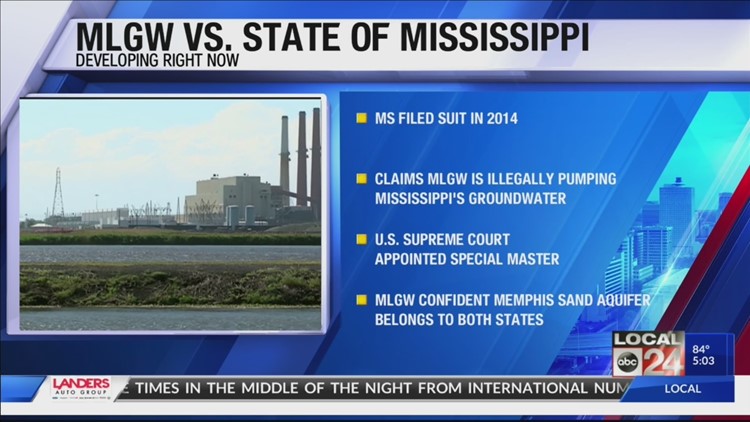NASHVILLE, Tenn. (AP) — A specially-appointed judge will make a recommendation to the U.S. Supreme Court in a water rights dispute between Tennessee and Mississippi.
Following a hearing that concluded last week in Nashville, Mississippi and Tennessee have 90 days to prepare post-trial briefs and propose rulings to special master Eugene Siler Jr. Siler will review them before making a report to the high court, which could accept or reject his recommendation on whether the aquifer is an interstate resource.
Mississippi claims Tennessee is unlawfully pumping water from the Mississippi portion of the Memphis Sand Aquifer for use by Memphis residents.
The aquifer, which is estimated to hold 57 trillion gallons of water under Memphis alone, lies beneath parts of Tennessee, Mississippi, Arkansas, Missouri, Illinois, Kentucky, Alabama and Louisiana.
The 13-year-old suit claims Tennessee has “invaded Mississippi’s sovereign territory” and violated Mississippi water law by taking the natural resource using wells near the states’ border. Mississippi is asking the Supreme Court to award it $615 million.
Tennessee and Memphis argue that the water does not solely belong to Mississippi because it is an “interstate” resource.
David Bearman, attorney for the city and Memphis Light, Gas and Water Division, tells the Daily Memphian that he feels “very good about the proof” put on through city and state expert witnesses.
“From our perspective, it is undisputed that the aquifer underlies more than one state, and that, we believe, is very compelling, if not dispositive on the issue,” Bearman said.
Using that argument, Memphis is asking Siler to recommend the case be dismissed.
In the hearing, the city pointed out the aquifer exists beneath portions of eight states; that pumping in one state can impact groundwater in another state; that before any pumping in the aquifer occurred water was “naturally flowing” across state lines; and no physical barriers existed to prevent groundwater from flowing across state lines.
For more than 100 years, the Supreme Court has decided state disputes over interstate water resources. This case is the first one involving an aquifer to be heard by the high court.
Mississippi, whose attorneys declined comment after the hearing, has rejected that doctrine and argued the aquifer is not an interstate resource. In addition to a ruling on the financial award, Mississippi wants the Supreme Court to stop Memphis from using the aquifer as its water source and require it to use an alternative such as the Mississippi River.
___
Information from: The Daily Memphian, http://https://www.dailymemphian.com/



